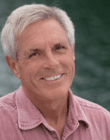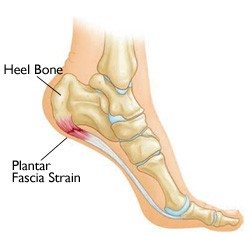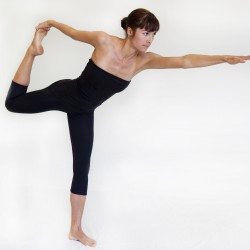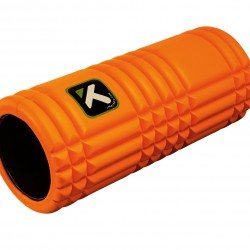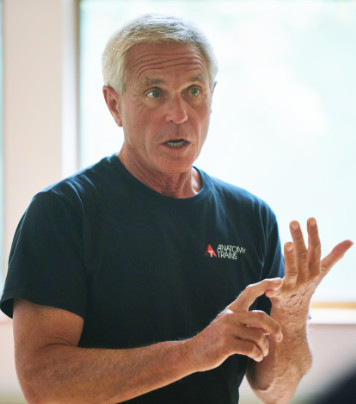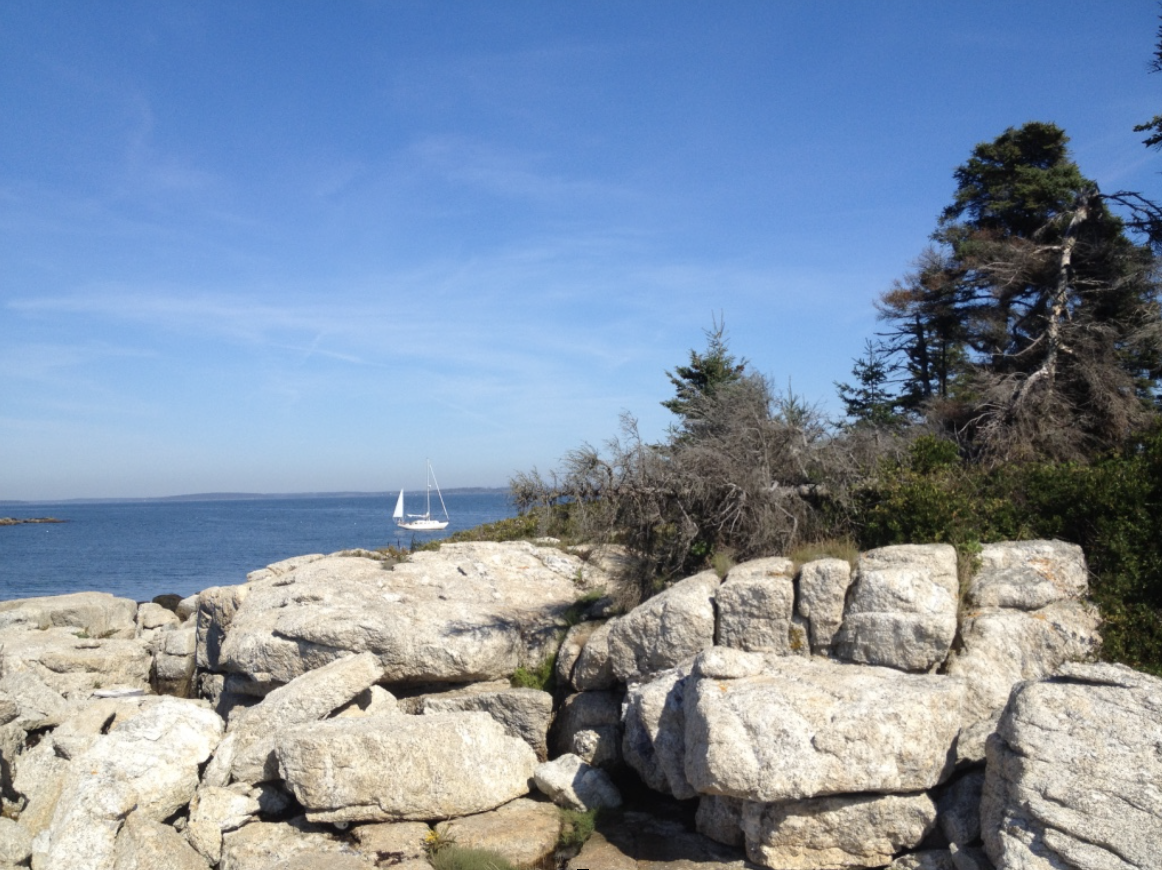
Expiation: The nature of sin
In this secular age, what is a sin? The rules of Deuteronomy, the Ten Commandments, or even the Eight Precepts are totally inadequate to the complexities of modern transgender, micro-aggressive, post-racial-but-not-really, it-all-happens-online social milieu. A new morality is definitely emerging, but it’s taking a while, and I don’t think I’m the only one – Graham Greene is my favourite writer for this question – to wrestle with ‘What is a sin?’
As a pantheist, I don’t believe in sin in its usual Christian sense, but modern pantheism has merely transferred the guilt by exchanging the word ‘sin’ for what’s ‘natural’ and ‘unnatural’. But if it can be done, is it not by definition natural? People declare all kinds of things to be unnatural sins, from same sex love to GMO Twinkies to the atom bomb, but it’s hard to argue that they’re unnatural, since Nature allows them all.
The old definition of ‘sin as separation’ – from God, from others, from yourself – certainly makes the most sense in a modern liberal theology, but the contradiction is still there: In Nature, no separation is possible; we are all connected to everything in the universe all the time – that’s the emerging scientific truth. So how can we possibly be separate from the whole?
Another oft-bandied term these days is ‘karma’, an intricate Hindu concept that is simplified in modern culture to “you get what’s coming to you”. That implies a god, or at minimum some cosmic accounting machinery, that is totting up the score and meting out justice. But karma can come or go without your knowing about it – it doesn’t matter your motivation, whereas ‘sin’ implies an inner bad seed, some kind of interior knowing and acting anyway
I have struggled with this concept a lot in my 40 years as a body therapist: How is a sin different from an ignorant mistake, or a crime passionel – spoken or committed? We do say ‘committed’ a sin, meaning that inner accession to the action or the words surely has a part in it. As i get older, the theology interests me little, and the psychology more, and sin boils down to a simple explanation: A sin is a commission of pain that demands expiation.
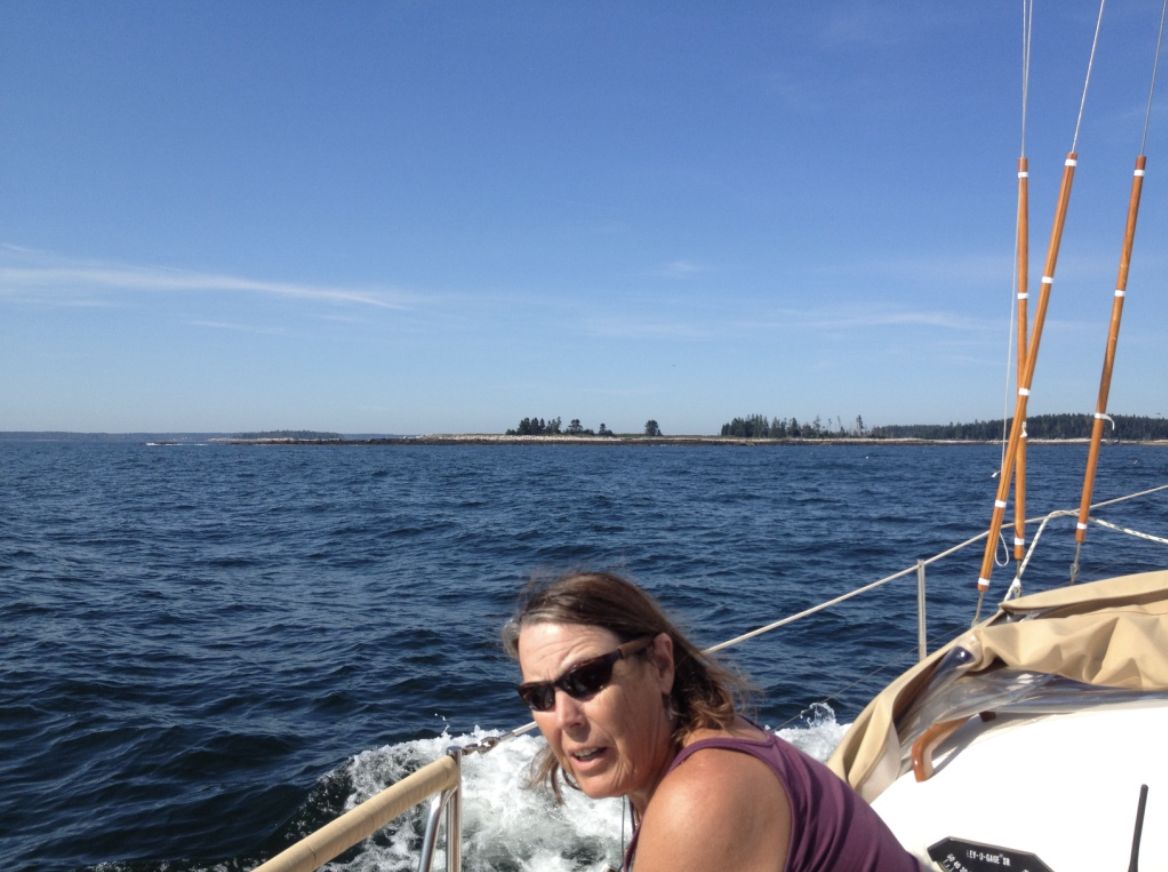
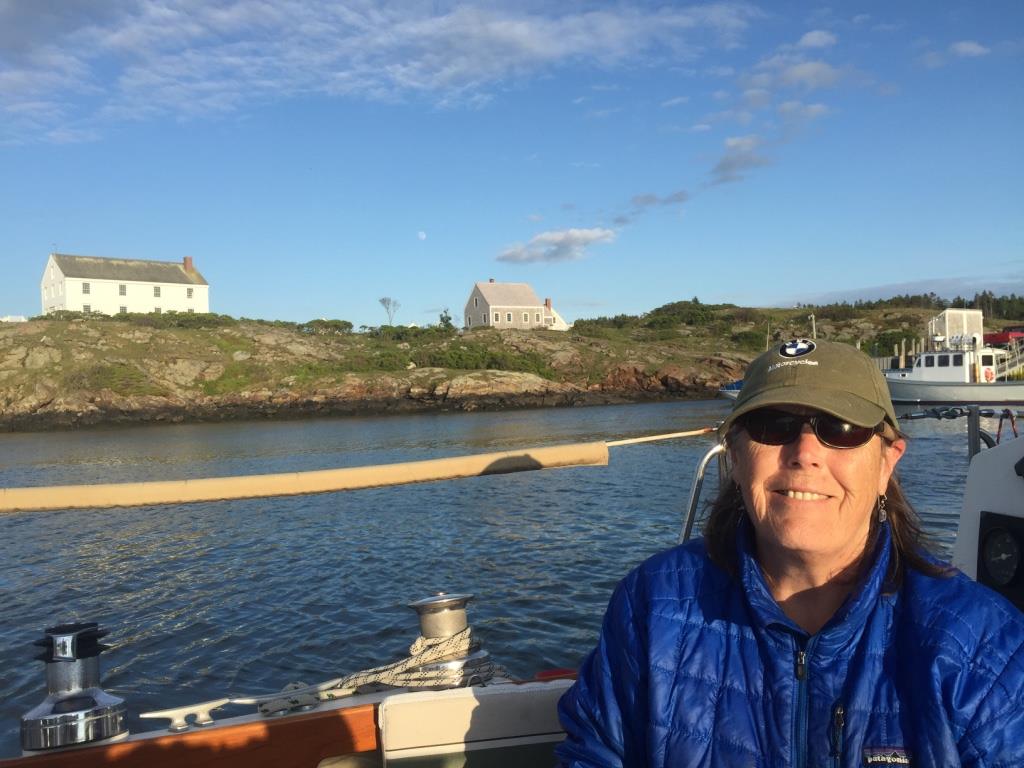
My friend Annie
Annie was my spiritual ‘sister’, and my sailing buddy. She died this year. The grief chokes me. The loss of her takes my breath away. The simple fact of not having a sailing companion is scary and lonely. You can’t take just anyone on a week-long trip in a Winnebago – honestly, you’d come to blows with most people, right? – and that’s essentially what we do in the sailboat. You have to be able to put up with stuff – she snored loudly in the forward cabin, and I was up way too early, banging around making tea in the main cabin.
These things didn’t matter, we traveled together hopefully and peacefully, always appreciative of the sea, each other, and often in long periods of companionable silence marked only by the occasional fart or sighting of a passing whale. I doubt if I will find her equal again this lifetime.
Did I sin against Annie? I hope I made her life richer – she became a Rolfer after working with me, she followed us up to Clark’s Cove, and was an essential part of building our school, which I know she loved. On the other hand, I did not let her in to be a full teacher but her table-side assisting helped many of our students find ‘the touch’. I was scornful of some of her ideas and discoveries. And we never found her a partner, what she wanted most in her later life.
Annie, though not a church-goer, was definitely in the camp of Jesus, and lived her life around unconditional loving and inspiration from Spirit. I found all this simplistic, occasionally self-serving, and I cannot say I was aways kind in my assessments of her pronouncements, enthusiasms of the moment, her spending and hoarding, or her passivity in the face of encroachment.
So this sail turns out to be the Annie expiation tour. Annie was my good friend, and I am sure she would say her later life was richer for knowing me. I committed no overt sin against her other than impatience, but nevertheless I feel now that I under-appreciated how much she did for me and our project. I don’t know that there was anything I could have done to extend her life, but I could have celebrated her contribution more when she was alive.
So I am resolved, in Annie’s memory and to atone, to explicitly acknowledge the implicit goodness in everyone I deal with.
Expiation, or atonement, is no easier a concept than sin. One remembers Robert de Niro in The Mission, struggling uphill with his brother’s armour attached to him until the healing tears spill over. What happens bodily in that moment of redemption, of knowing the atonement is over and completed? Sin unatoned breeds guilt, and we all carry the clanking armour of our guilt as a weight that holds us back and slows our spiritual development.
Annie died in February, so this is the first major sail I have done without her on at least part of it in 20 years. I wasn’t able to attend the service that her daughter held on Casco Bay, so I must mount my own ceremonial remembrance. On the boat together – many hours, many days over two decades – there was no sin. We meshed totally, and sailed contentedly in silence, relying on her cooking skills and my sailing skills – it was a happy arrangement. So it is to the boat I must repair to honour her memory an make what atonement I can.
Haji
Many expiations require a pilgrimage, a haj, and so I set sail for Annie’s favourite secret alone pace, a remote cove on an outer island we had visited several times, and we were always the only boat there. She loved it, and it’s where I need to go to honour her.
Getting there solo was a wild trip, requiring all my strength and sailing knowledge. i quit the surly bonds of earth – leaving the office, the farm, and my personal woes to work themselves out – and took off downriver with the tide one morning. I emerged from its mouth into the ocean to find the wind was blowing at more than 20 mph, the rollers were huge and a confused chop on top of them, and atop all that it was thick a’fog – couldn’t see 100 metres in any direction.
It is not usual to have thick fog and high winds – it’s usually still fog or clear wind, but not today. I raced long through the murk, riding the waves – alternately surfing expertly and then bucking like a bronco. It was absolutely worthy of a haj – two days of being at the limit of my sinews, and constantly feeling every sinew of the boat – is she alright? am I really where I think I am? I was hooked to the boat, literally, with a strap and vest – I would have been lost forever if an errant lurch or a wave coming aboard had knocked me off.
I was thoroughly wet and cold, and tired from constant heavy steering. My eyelashes and whiskers were beaded with droplets. I was covered by a grey dome of fog above, and surrounded by a hundred yards of lumpy waves – that’s all I could see. I was sailing, so I could hear the fishing boat engines and avoid them easily, and just hoped nobody else was so stupid as to be sailing, as a collision would happen quickly if they emerged out of the pea soup. Unlikely, but it required content vigilance.
The grey waves lumping at the limit of my vision kept appearing as boats or islands, fooling my brain again and again, until I just trusted I was where the GPS said I was – well out to sea, with no islands or rocks around.
In fact those two days I saw nothing all day but the occasional buoy and the frightening white line of surf and – if you get close enough – its hiss. But everything was where it should be, and I sailed from marker to marker, like the Stations of the Cross on my way.
I kept thinking I would stop at the next shelter, the next opportunity to make harbour. I was being chased by thunder storms, according to the radio, but of course I couldn’t see them coming above the fog. But I was making such good time, the thunderstorms were still not catching me, so I kept saying , Oh, I can do one more hour” – and put away 50 miles in that first day, Allen Island past, and then Two Bush and Home Harbour, Hurricane Island and Carver’s, slipping under Vinalhaven, across East Penobscot Bay and finally at dusk with darkling air, slipping out from under the fog into an anchorage at Isle au Haut with total relief.
Thank God for leftovers – I heated up some casserole I had brought and fell gratefully into my bunk.
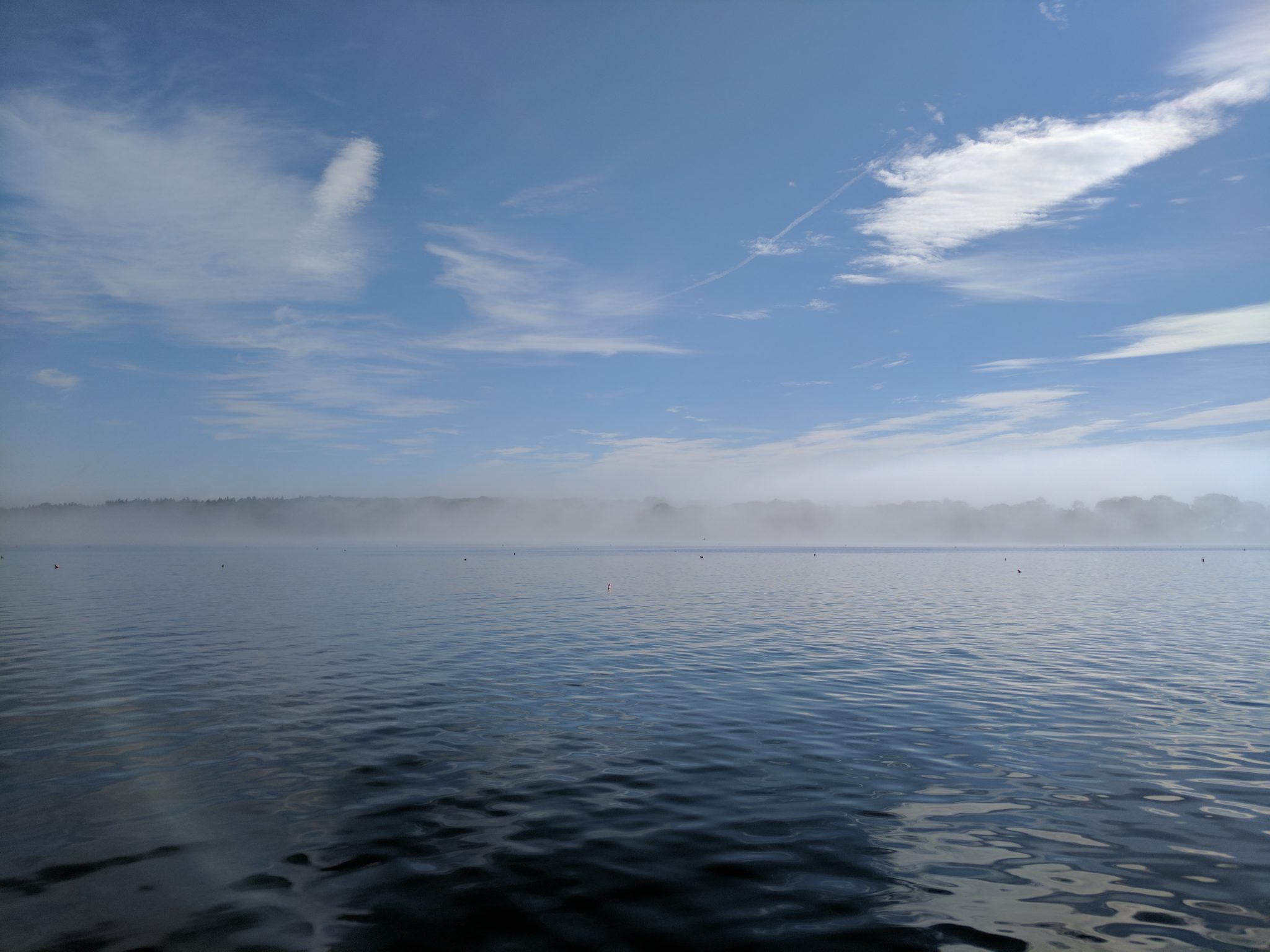
The boat at rest, the rain showers rolled over me while I slept safe in Kimball Island Harbour. The wind remained, and the next morning I plunged down the passage past Merchant Island, back into the fog and wind for another wild ride through the grey and wet, skirting the outside of all the islands, finally arriving in the remote outer cove from its sea side in the afternoon. I dropped the anchor within its peaceful surface, sheltered by encircling points. I unstrapped myself and tidied up after the long trip – as if putting on my vestments – and went ashore in the dinghy. Cold, wet, slow like a sloth, happy.
Release
Annie had a habit of breaking bottles up and down the coast, for future generations to find as sea glass. She loved sea glass, and often worked it into her many creations – lamps, mobiles, setting it into her art pieces. I always used to laugh at the chances of anyone finding a piece of this in whatever future you care to conjure, but she had faith – the polished, smooth, matte finish of her sea glass, swirled by the waves over rocks to some place where it could be found by some yet-to-be-born child.
So I took with me on this trip some bottles from her house, and a special glass we had shared, and broke them ceremonially on the shore – as she did, down near the low water mark and off to the side, where no one – if anyone even comes here – would cut their feet. All the while I am chanting and praying – more for myself than thinking anyone’s actually listening – to free Annie, to free myself from Annie, and to atone for any sins against her that might keep us tied in any negative way.
But she was there – the part that loved the sea, the stout-hearted one that sailed forth into Buzzard’s Bay with her bobbing and breasting Herreshoff. Annie was a living demonstration that courage is not the absence of fear, but right action in the presence of fear. I prayed to take her courage into me by example, and I set her free to ride the wind – reluctantly, o my good friend, but I must let you go.
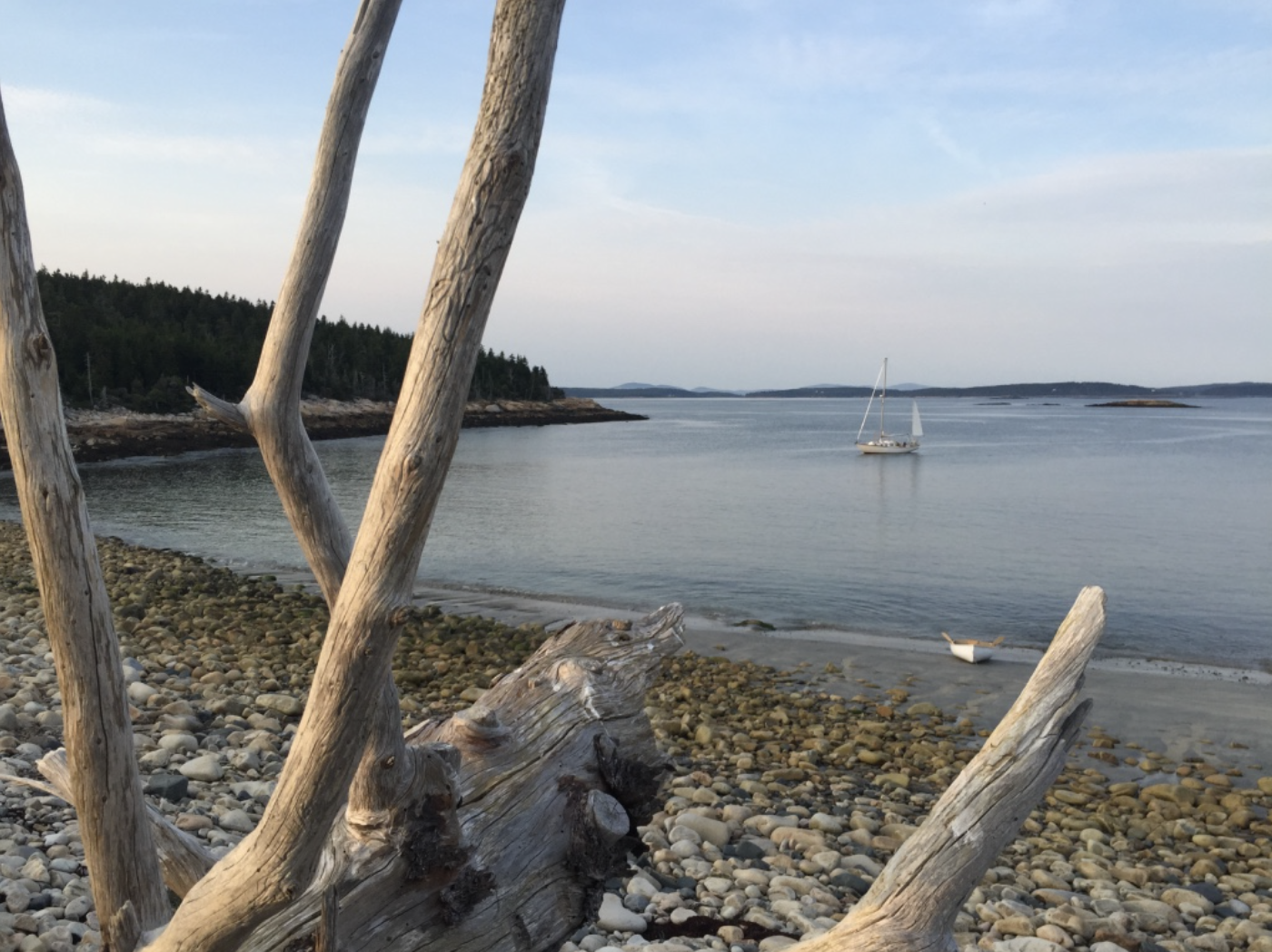
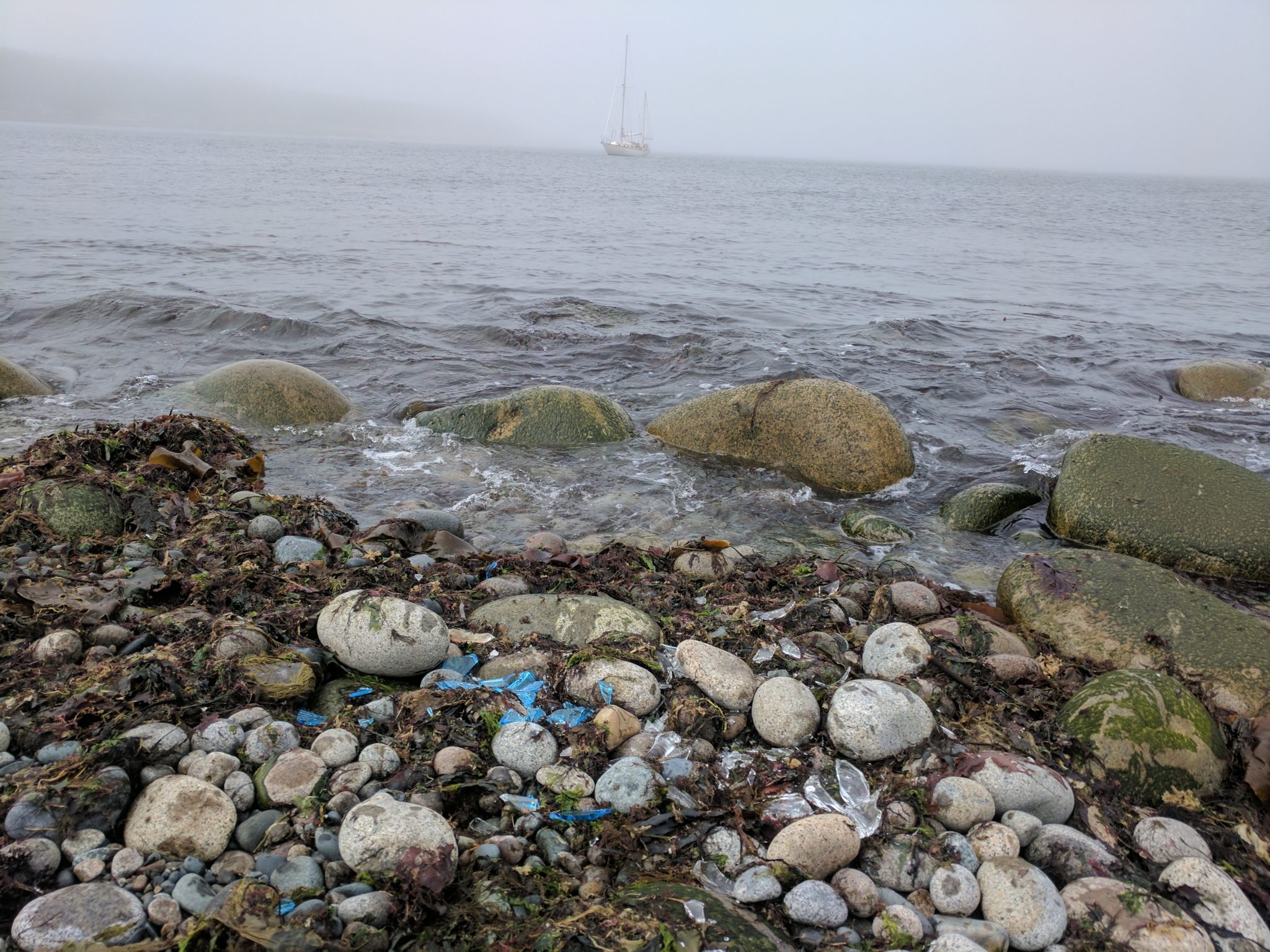
Finished – spent – I walked to to the top of the rocky beach and looked over the sedge-covered berm to the cove on the other side. Above the shelter of the berm, the wind whistled in my face as I stood on the driftwood tangle thrown up there by storms. I called upon all the gods in my pantheist sky to look upon Annie with favour, to grant her a deep partnership in her next life. I called for forgiveness for all my sins against her, known and unknown. I forgave her for what sin I could find against myself, but it was a small cupful – she was a grumpy old sod sometimes, especially about her garden, but what the hell. I did some other rituals that will stay with me as private, but I felt I had honoured my friend, freed her from any ties to me, and sent her on her way.
On the way down the beach to the dinghy, I let my inner Annie choose a rock – she was amazing at finding gems among the popplestones that make up what passes for a ‘beach’ in most of Maine. We – I, really, her back was not strong – would struggle them into the dinghy, up onto the deck, and lever them into the fo’c’s’le in the bow under the anchor rope. At the end of our trips, they would end up in her garden. When I let go of my own vision and scanned with hers, I came up with a beautiful granite heart rock. As I pried it loose from its resting place, I saw it had an open wound along its underside, a crack that at first I was going to drop it and search for another, but then I saw her point: it was a broken heart rock.
Given the other events happening in my life at the moment, a broken heart rock was perfect and I lugged it down the beach and placed it carefully in the dinghy. If it dropped it would go right through the thin fibreglass! Getting it solo up from the little tippy tender onto the deck was a trick, but it was soon stored. I stayed, singing a song Annie liked on my boat guitar, and calling again upon all the gods to send her good fortune. (Honestly, it was easier to do these rituals in full voice as I was utterly alone. I don’t think I could have howled in the presence of others.) Then, reluctantly, but it was no place to stay the night in such wind, and done is done, I pulled up the anchor, backed the jib, and fell away to the north and east.
The Remembrance Tour
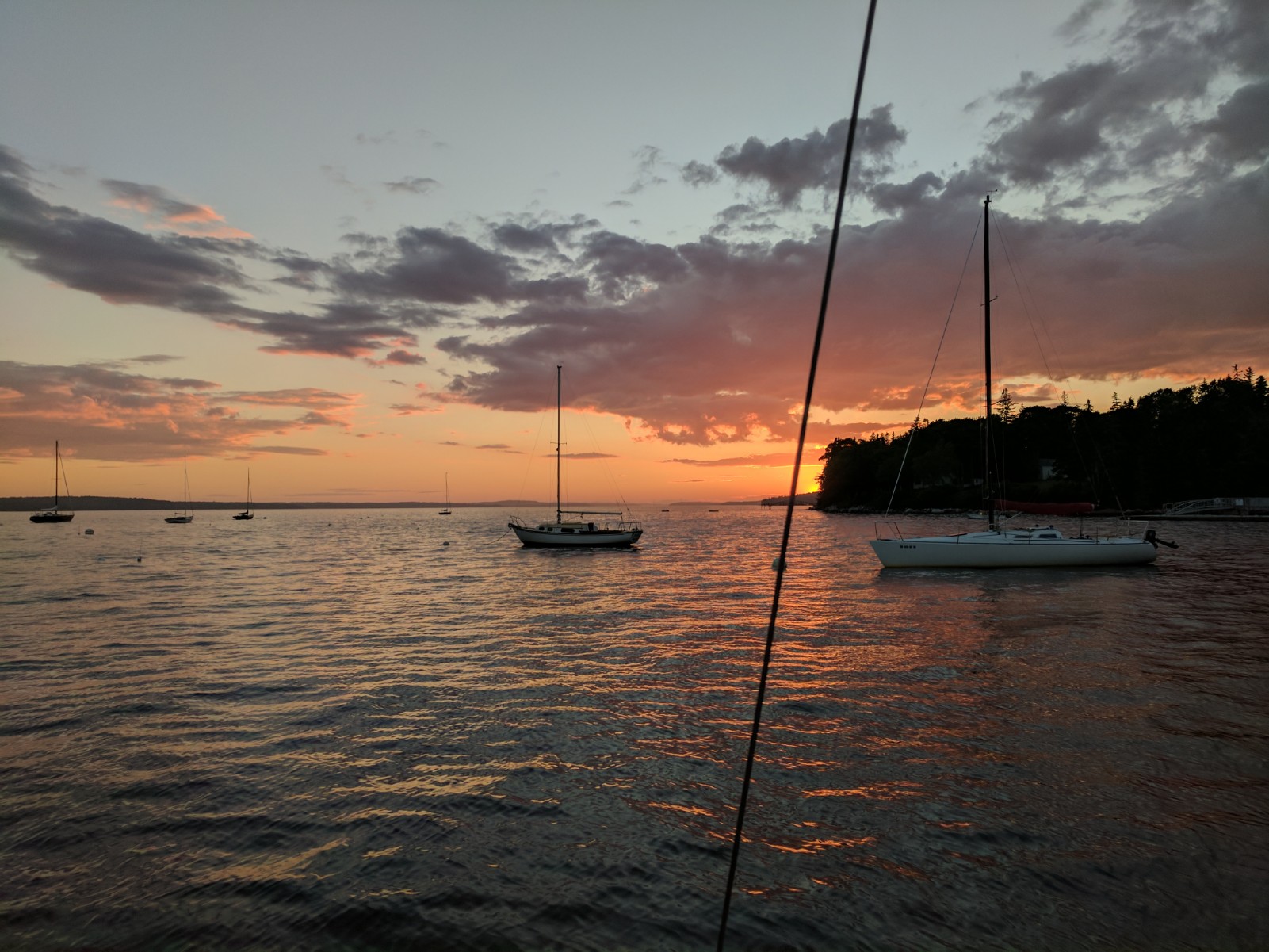
What to do next? I had been on sailing trips alone, but not for long. I needed a challenge, a purpose to even this vacation. After a couple of days of seeing my brother on Eggemoggin Reach, I worked back to Tenant’s Harbour to visit a dying friend, a courtly German who helped me put my business in order.
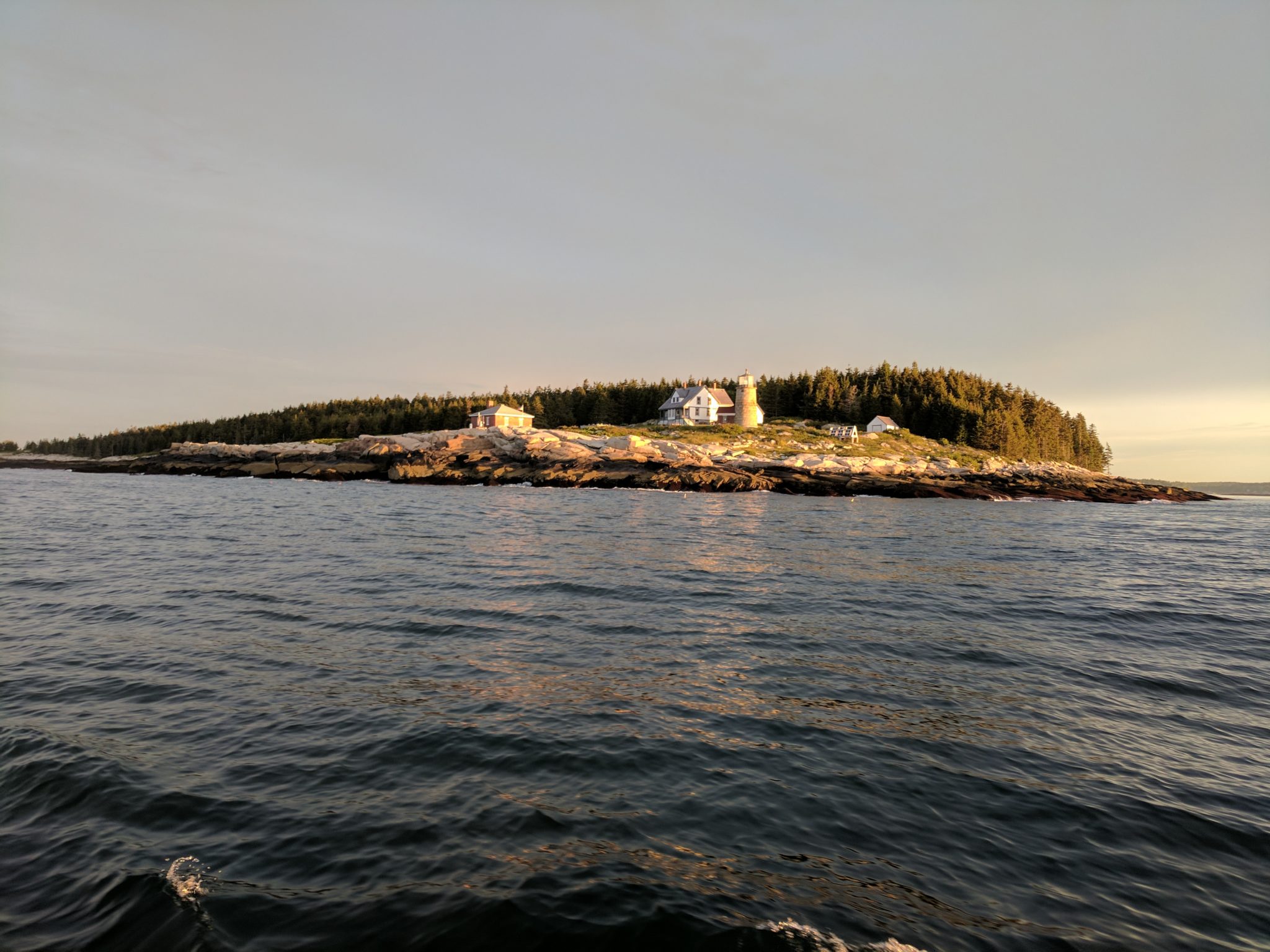
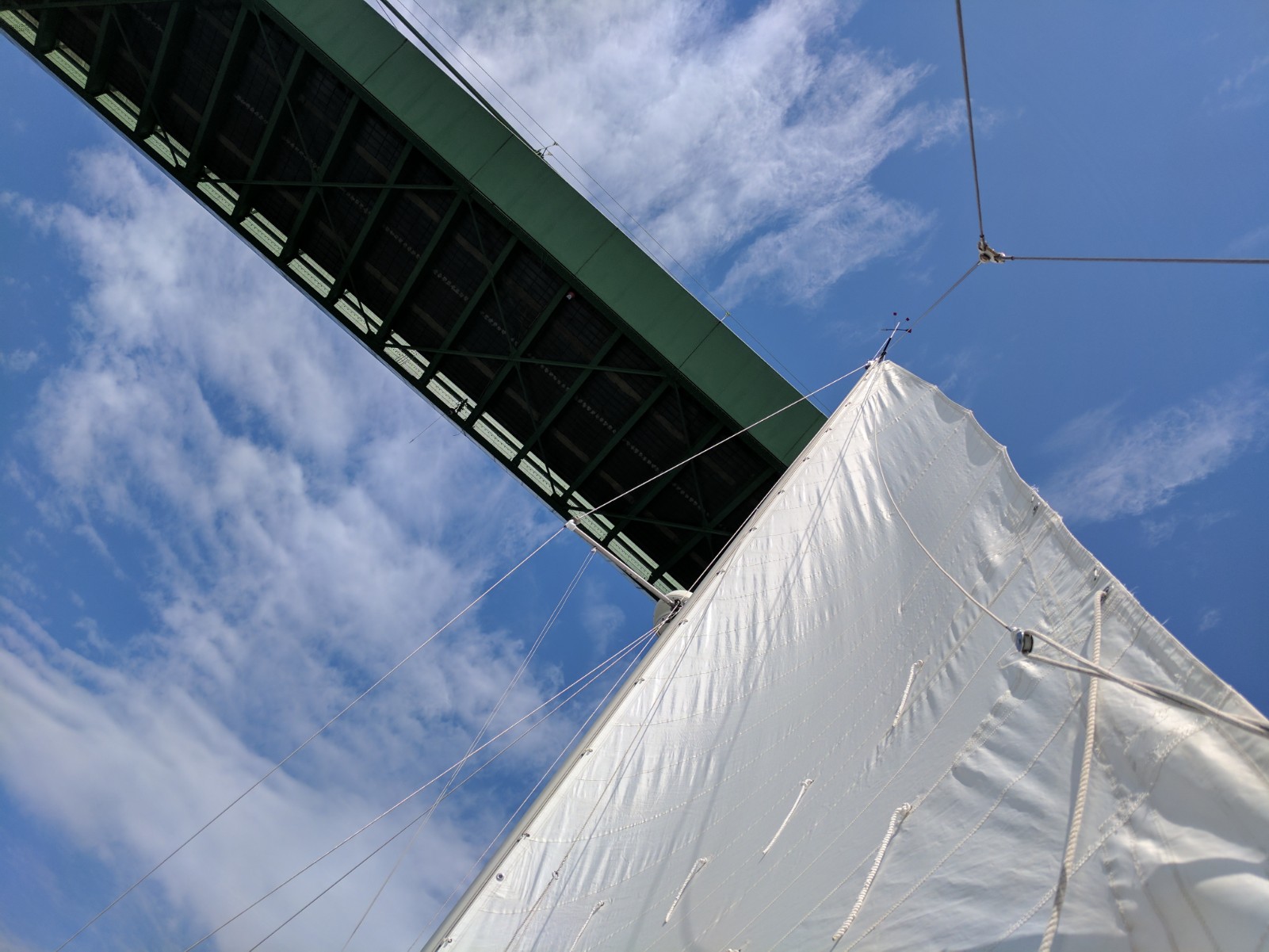
Along the way, the fitting holding my main sheet to the boom broke with bang, a block whizzing past my ear (I was lucky) and the mainsail flapping untethered – of course in 25 mph of wind. Finally I got it down and under control with difficulty and sailed on under jib and jigger. John just happened to be in Rockland, so he was able to make a temporary repair a couple of days later, so the boat was whole again. I took a young friend, never at sea, out for a night to Hurricane Island and The Basin. It was unfortunately foggy most of the time, but I loved seeing him take in the sea – its power, its peace, its implacability in the face of all our games.
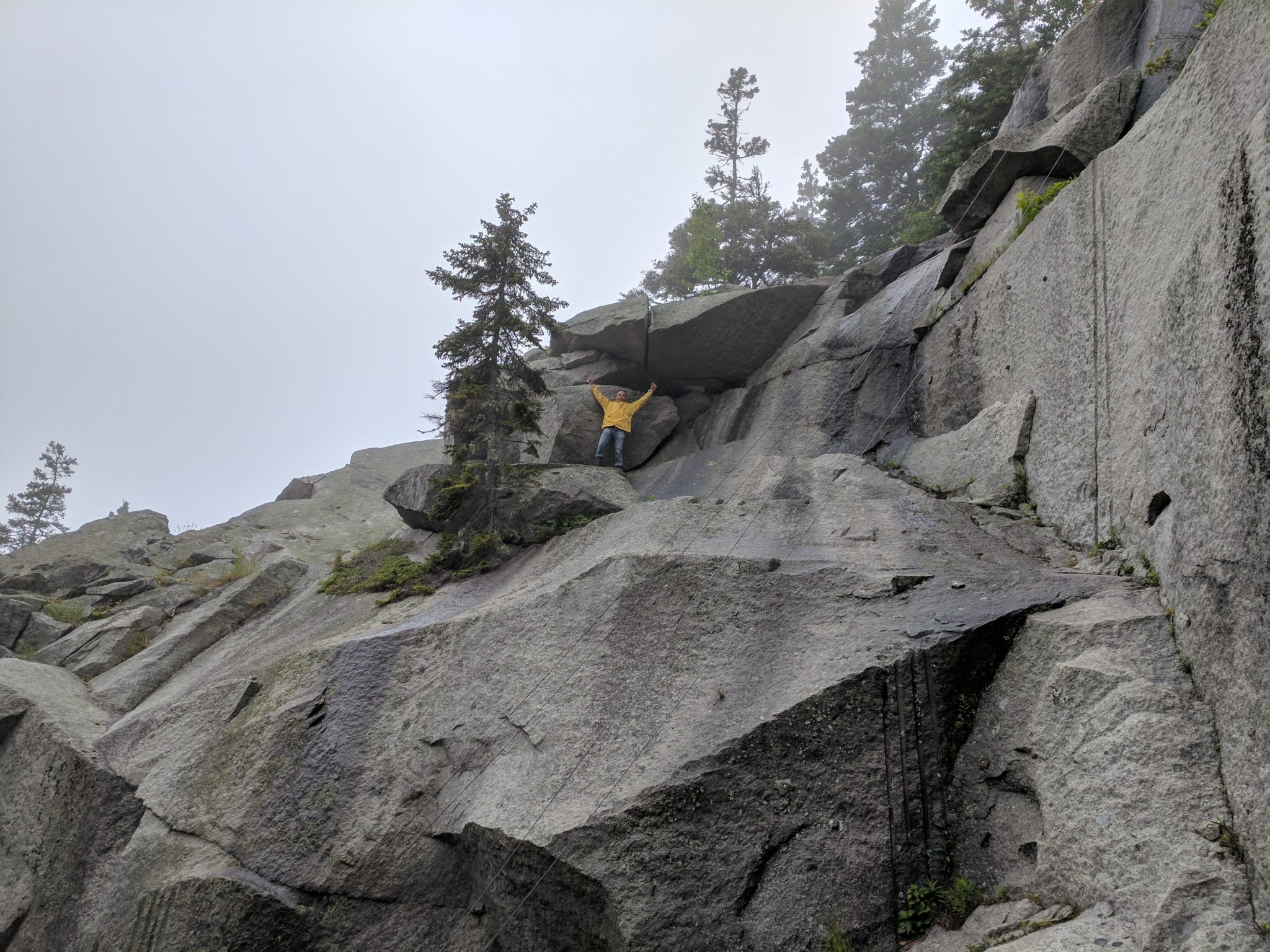
These were all good errands, and fun to work them in a boat. But my usual penchant for running back home and exerting control was missing – the staff has it all well in hand – what could I do now that Annie and I are no longer onboard together? What’s the play?
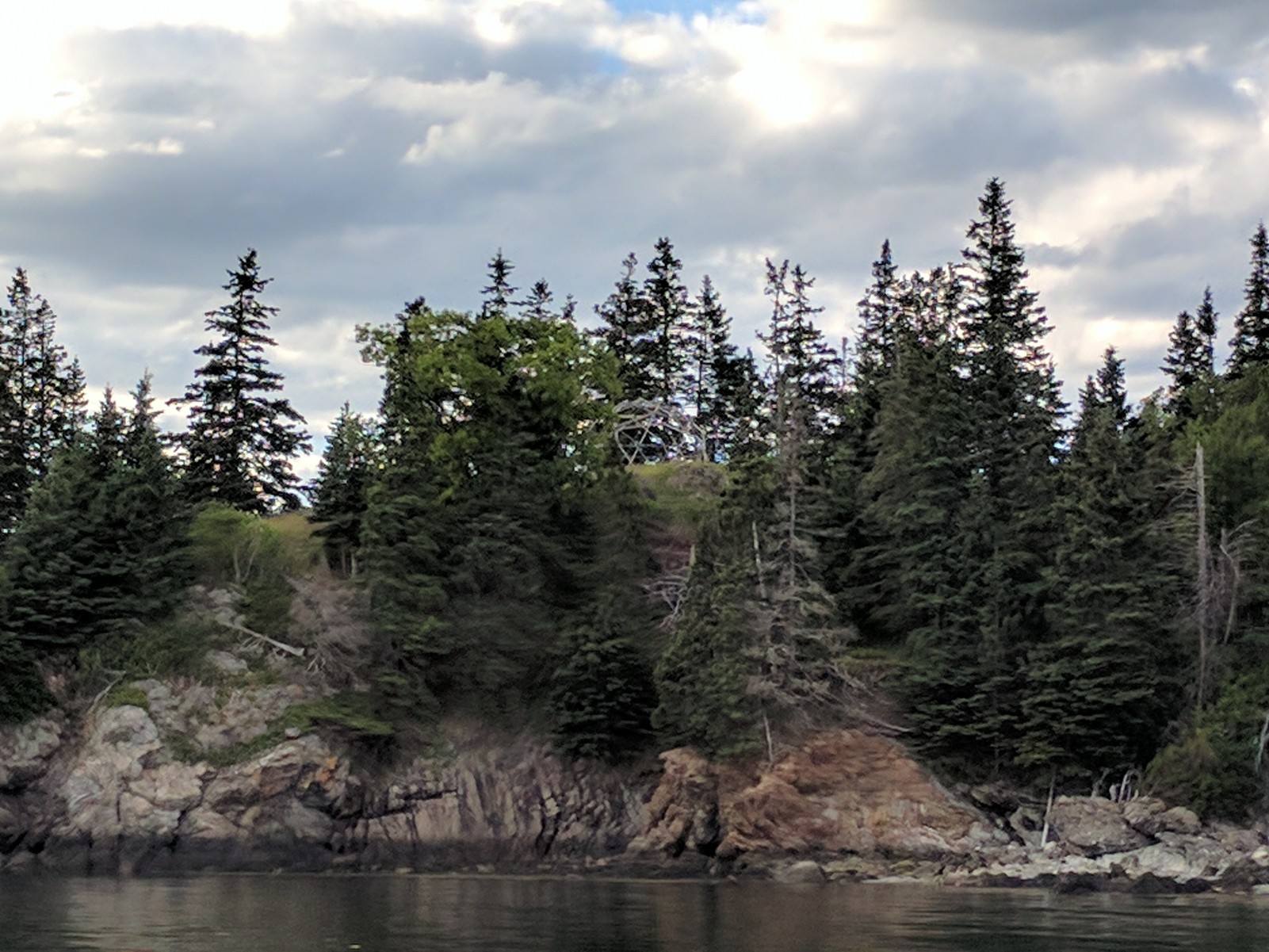
Go east, and challenge myself with the big tides and lonely places.
So I let young Somphat take the ferry from North Haven, turned east as I waved him on his way, and by nightfall was in Bass Harbour at the foot of Mt Desert. Couldn’t raise my friends there, so no dalliance. Out with dawn the next day, and fair winds took me all way past the rich playground of Mt Desert, past the high bluffs of Schoodic, asea of the lonely spire of ‘tit Manan. The light at Petit Manan stands impossibly tall, and impossibly far out to sea, and is (for a coastal sailor like me) the ghostly gateway to the terra incognita. East of Schoodic you are approaching the Bay of Fundy – there are fewer buoys, more unmarked rocks, thick fogs, and strong tidal currents.
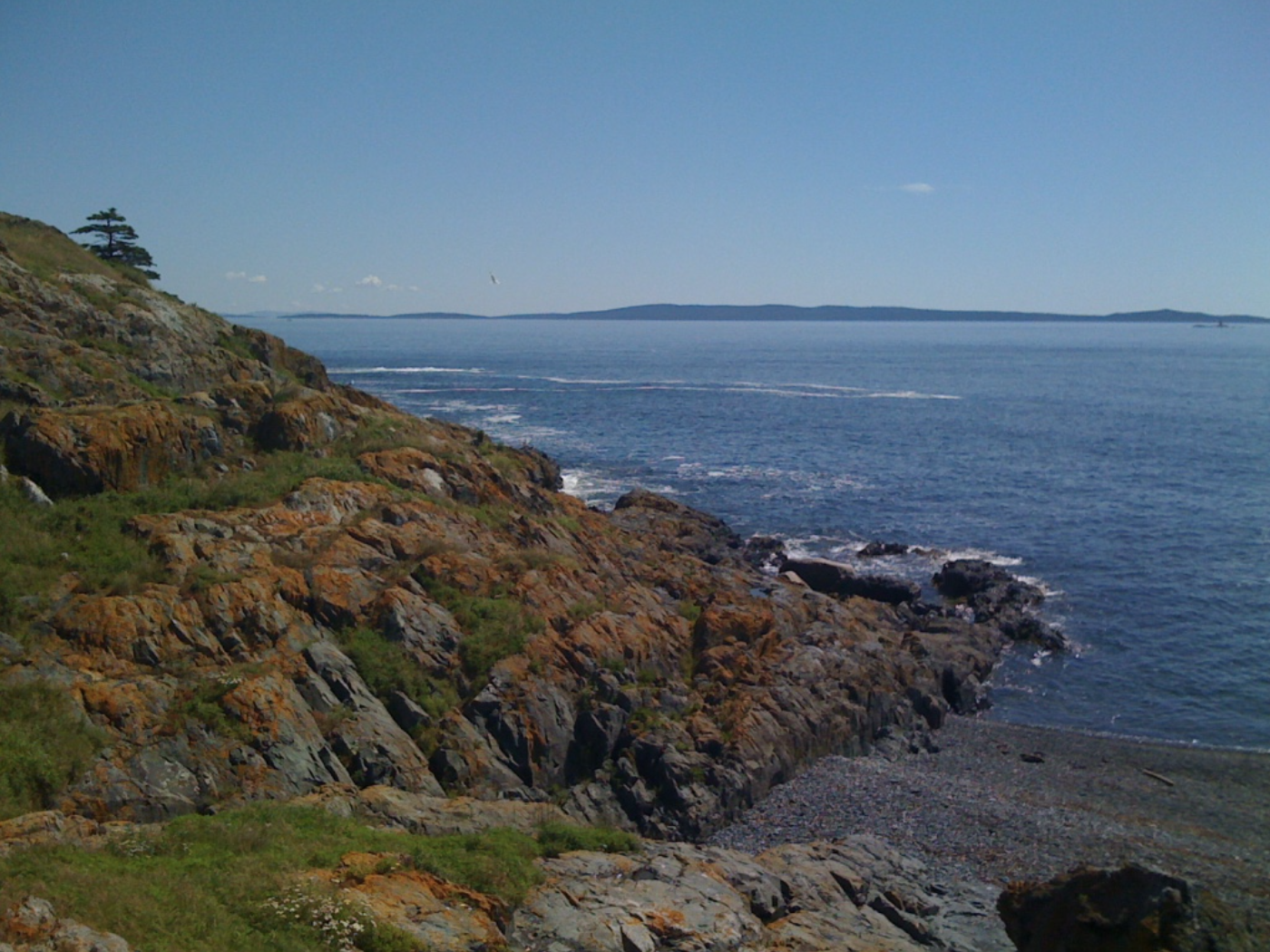
I had been beyond ‘tit Manan before, but always with others – Annie, Christoph, my sister, Warren – so this was the first time I was trying it alone. It seemed like a fitting test, in my new lonely state – can I single-hand this 16,000 lb boat into utterly new territory? I ran down outside all the bays to the stark red granite bluffs of Great Wass, and tucked that night in the Cow’s Yard, a protected anchorage near the sea – pristine, alone and happy.
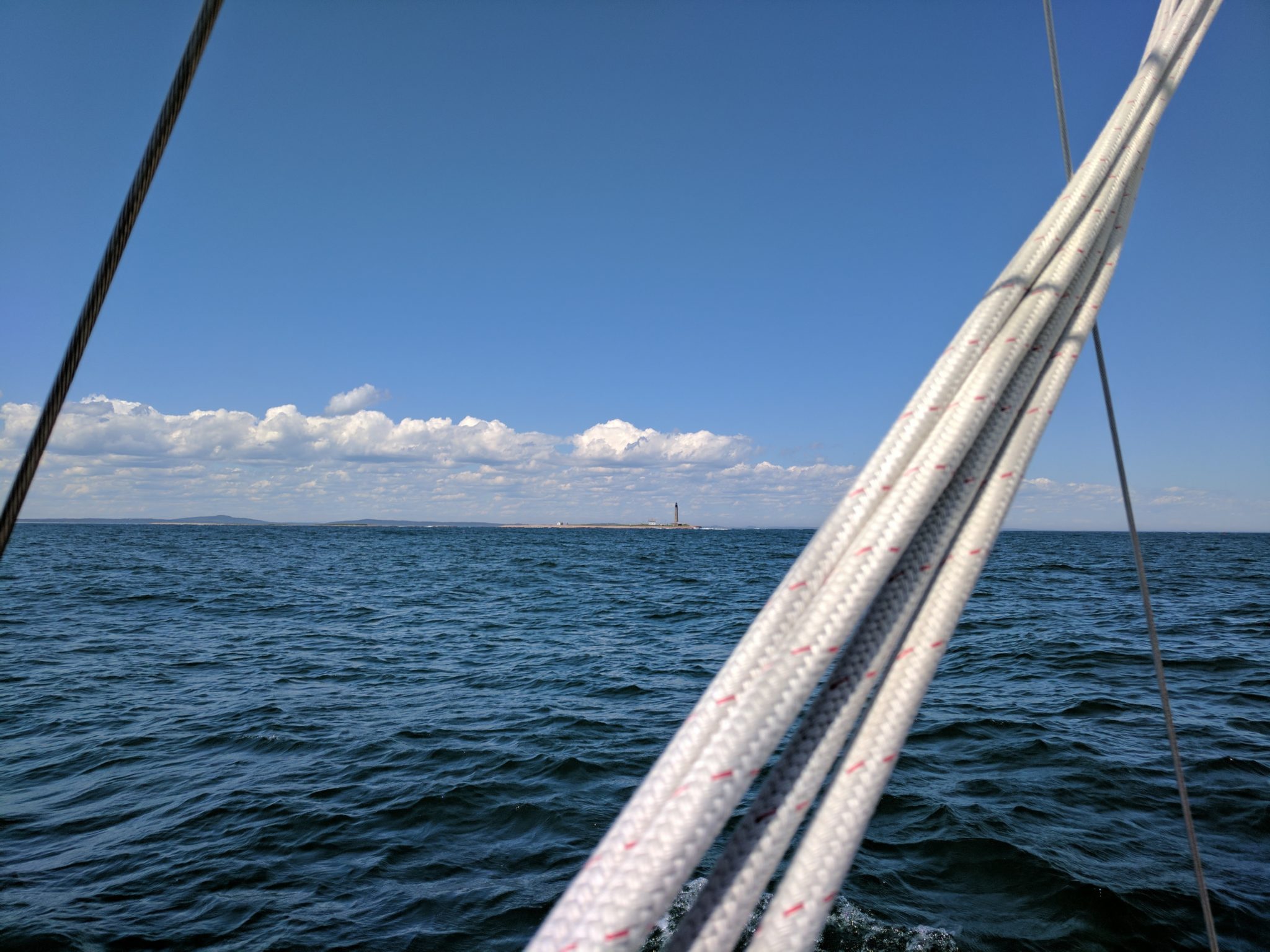
The next day I circumnavigated Roque Island, a fabled destination near Machias, and worked my way into the centre of its archipelago, and anchored – alone, I cannot believe no one else is here – just off that strange phenomenon unique to Roque: In the middle of this ironclad granite coast, rocks time out of mind tumbling into the sea and turning its waves to spray, spare and forbidding, there is a totally unexpected mile-long sandy beach – white fine sand that slopes and laps as if it belongs in the Caribbean. Mecca for my sail – a bit of the tropics in eastern Maine.
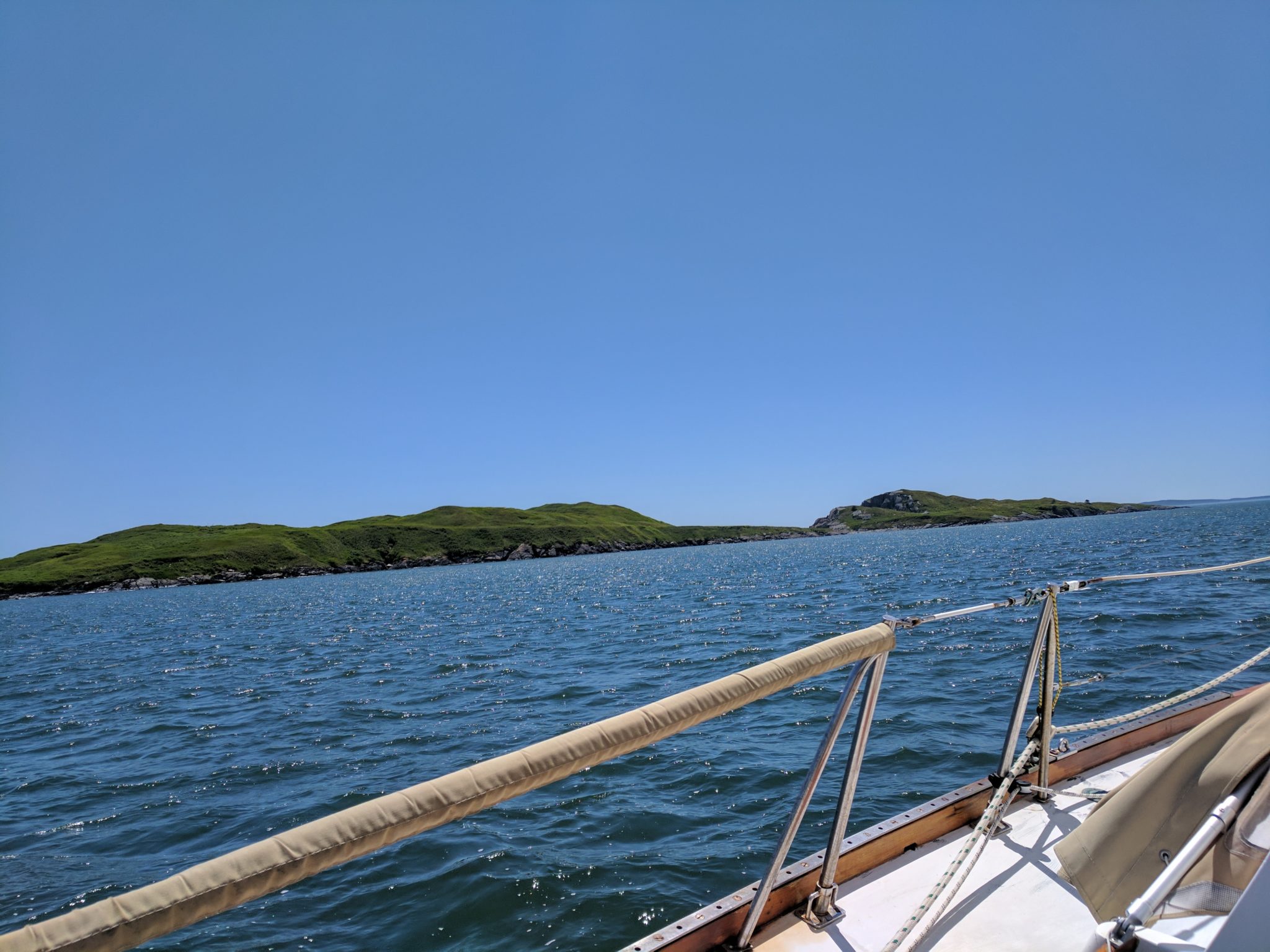
I anchored at the sheltered end, out of the wind, rowed in and spent a couple of hours basking in the sun’s heat, a reward for the many hours of numb hands and fog angst. I bathed in the frigid water – that part isn’t tropical – but rinsed off with a jug of fresh I had brought from the boat – a bit of shampoo, what a joy to be clean! It was an hour of grace.
You know the feeling of coming down a mountain? You are glad you went, it was lovely and transporting to be at the top, but now each step takes you back from transcendence lower toward mundanity, toward the things undone, other sins to be taken through the 12 steps, new tasks await. I have that feeling now – I love sailing, but this trip has ‘peaked’ and I am working my way home- enjoying every minute but having completed my larger purpose, cherry-topped by my moment of quiet triumph at the beach.
The rest of the trip was a remembrance tour – looking at the Jonesport Bridge, where Annie and I struck with the top of the mast going under it at mid-tide, with the wind indicator and bridge paint raining down on us with our hearts in our mouths. Mistake Island where we saw all the puffins, Shipstern that really does look like one, and Trafton where we tried to hide from a violent storm, Bois Bubert where I ran the old Concordia up on the rocks to my everlasting shame, Corea where we managed to limp into, and back to Mt Desert and the only real fjord in the States, Somes Sound, where we delivered the broken boat back to its owner.
Too many to tick off, but the memories of all our sailing trips pour over me – ‘Remember?” I keep saying to her, “Remember when we…” – as I sail back down the coast to my life already in progress. When we went in search of rocks and were chased by hordes of mosquitoes at Lakeman’s Cove, when we swam in the quarry at Green Island, when the engine broke and we saw a shark, when Andrew Wyeth blessed us from his door and the year of his death – so many sorties over the years. This was a great break, a chance to really celebrate Annie, and our partnership. Over too soon.
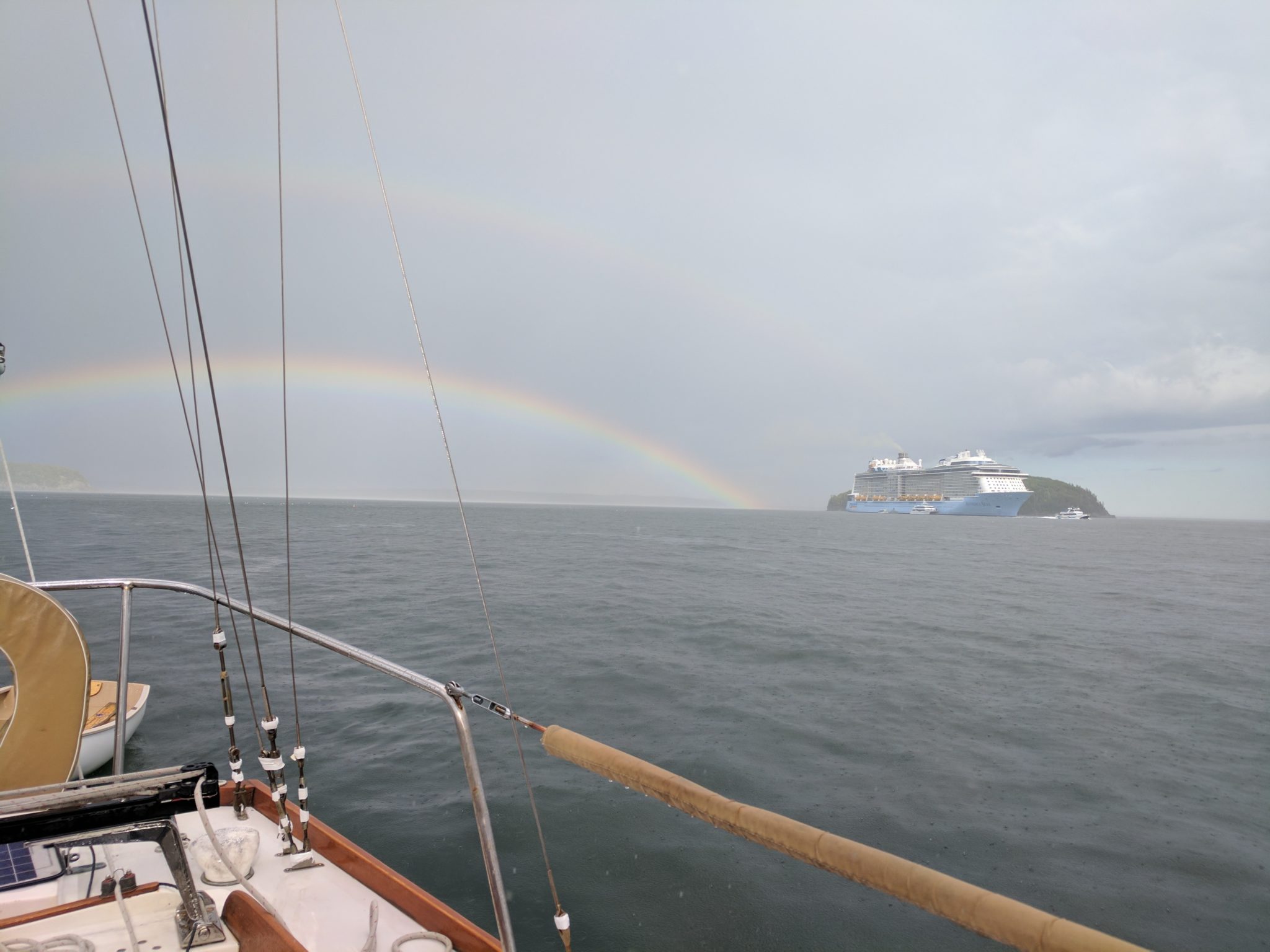
Radical forgiveness is hard to achieve with others, and even harder to achieve for yourself. Even now, I do not forgive myself for my sins, with Annie or anyone else. I forgive Annie alright – I am a New Testament god for others, but an Old Testament god for myself. When they come up – embarrassing or cringe-worthy moments from my past when I committed pain- they escape with a little groan, which eases the immediate feeling of regret, but expiation for those long past (and often rather silly or innocent) sins is for someone else to forgive, not me.
I go back to the original meaning of the word – the ‘pia’ in expiation is the same as in ‘piano’ – soft. My sin of impatience or hardness with Annie has softened, I carry her within my now, and that’s a softening. Maybe that’s as much expiation as this New England soul can hope for.
The Force is strong with me in this trip, and I feel ready to cut the string and let Annie-as-she-was fly, and carry the Annie-that-is within. I am living in her house now, and I will see how it feels when I get back, now that I have ceremonially cut the cord in a meaningful way. She was my good friend, and our anchor. To cut the cord is to be set adrift. I did not anticipate being set adrift so late in life, but my command of the boat in difficult waters shows me I have another chapter, yet to be written.
Fly Annie! Trim sheets, Tom!
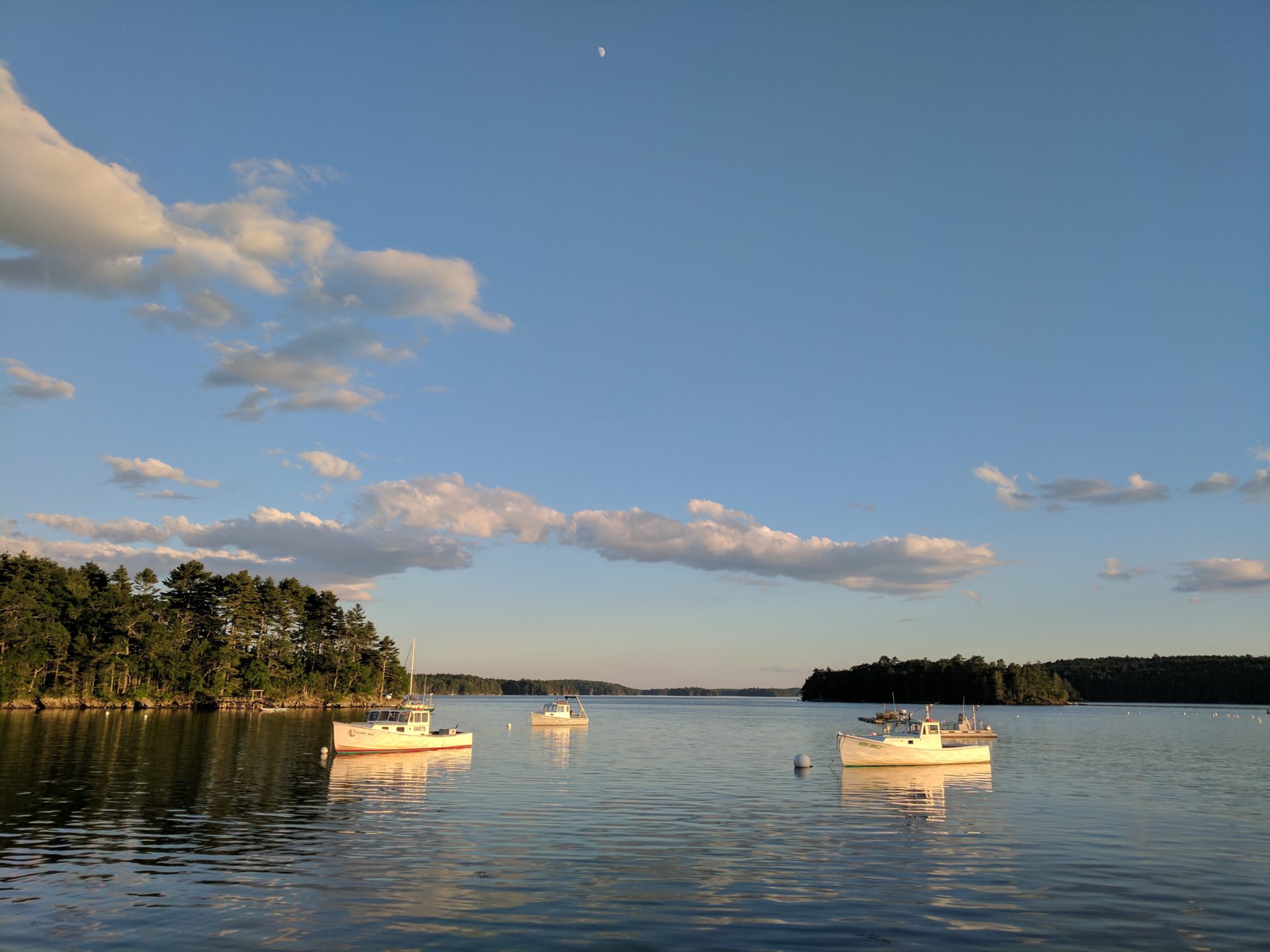
Wyeth blog post from nearly 10 years ago:
Wyeth
September 2, 2008
It had been blowing at 20 knots from the north all day, and it was forecast to blow from the northwest all night. Most harbours are protected form the prevailing southwest, but Georges Harbour, between Allen and Benner – awful in a southwest – would provide good protection in this wind and sea. We rounded Old Cilley Ledge, bouncing over a cross-chop in a shiny metaled sea, but it settled down immediately we entered the narrow passage of the harbour.
Andrew Wyeth bought these islands many years ago from a group of owners who included my father. Since, he cleared the north end of trees and built a series of buildings in various New England architectural styles. At first, they looked a bit Toytown, but with age they have mellowed into the island landscape.
A woman with gray hair on the dock, I presume Betsy Wyeth, offered us a mooring on our way in, and we gratefully accepted. The afternoon waned in peace, the goats who keep the brush down wandered onto the high pier, the evening descended upon us; we and the Wyeths, judging by lights out, went to bed at the same time.
In the morning, after a good breakfast to shore us up for the long sail home, I raised the main, left it loose and backed the jib to turn us on a dime, slipping off the mooring and up the slender harbour between the other boats. The screen door of the perfect, unadorned, silvery grey Cape opened, and a spare old man with silvery hair and wide shoulders lifted his arm and said “Beautiful!” We lifted our arms in return salute, too floored to speak, until we thought to offer a belated “Thank you” for the use of the mooring.
It’s not often you get called beautiful by the most understood painter in America.

